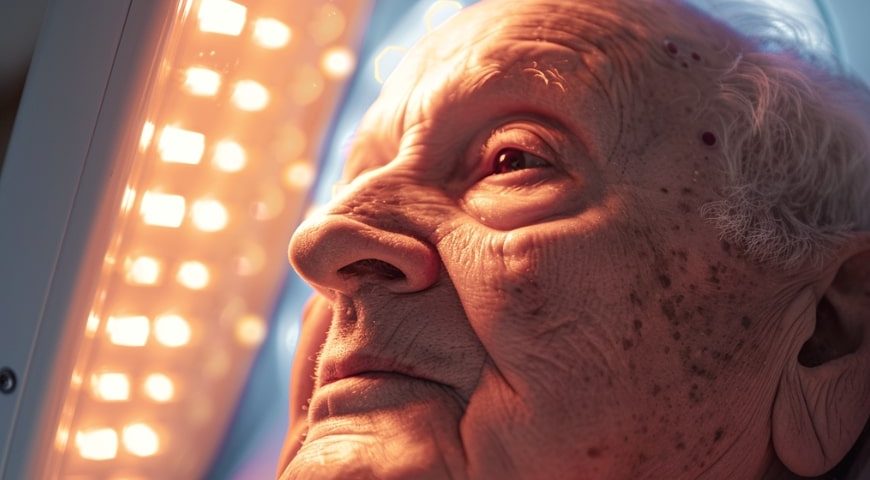
Dementia is a complex condition that affects millions worldwide. It often impacts the daily lives of both the patient and the caregiver. However, light therapy has shown promise in helping people manage this condition. In this blog, we’ll provide insights into light therapy for dementia.
It’s essential to note that while we aim to provide a basic understanding of light therapy. You should consult a healthcare professional for personalized advice.
What You Need To Know About Light Therapy for Dementia
What is Light Therapy?
We all possess an internal biological clock called the circadian rhythm, which regulates our body’s daily processes. Dementia can disrupt this rhythm, leading to sleep disorders and nocturnal disturbances.
Light therapy works by stimulating the brain and improving cognitive function. There are several types of light therapy for dementia, including bright light therapy (BLT), transcranial near-infrared light stimulation, and photobiomodulation. BLT is often the most recommended for those with dementia.
BLT involves exposing patients to bright light, usually through a lightbox, to help regulate their sleep and wake cycles.
Potential Benefits of Light Therapy for Dementia
While research on the use of light therapy for dementia is still ongoing, studies have shown promising results. Light therapy may offer:
- Improved Sleep Quality: Patients may fall asleep easier, stay asleep longer, and experience fewer nighttime awakenings.
- Reduced Daytime Napping: Excessive daytime napping can disrupt nighttime sleep, creating a vicious cycle. Light therapy can help regulate this pattern, promoting alertness during the day.
- Decreased Agitation: Improved sleep can lead to a calmer and more manageable day for the person with dementia and the caregiver.
- Improved Mood: Better sleep can positively impact the patient’s and caregiver’s mood and overall well-being.
It is important to remember that these are potential benefits, and individual results may vary. Always consult your loved one’s healthcare team before starting any new therapy. They will be able to assess your specific situation and determine if light therapy is appropriate.
Using Light Therapy for Dementia
You should not view light therapy as a cure or a replacement for other dementia management strategies. It is most effective with proper medication, sleep hygiene, and other dementia management approaches.
Resources and Support
Numerous resources are available to offer support and guidance. Check out the Alzheimer’s Association, the National Institute on Aging, or local dementia support groups.
Have you considered incorporating light therapy into your loved one’s dementia care routine?
Dealing with dementia can be difficult, but light therapy may offer some hope. Work with your loved one’s healthcare team and seek support.
You can also explore the benefits of senior living communities with memory care services. These communities provide specialized care tailored to the unique needs of individuals with dementia. By doing so, you can make this journey easier and improve your loved one’s well-being.
Innovative, Experienced, and Trusted Senior Living Community
Looking for exceptional service and care for your loved one? We welcome you to our senior living communities, where the health and well-being of our residents are our top priority. Please visit our contact page, and we’ll answer your questions.
Thanks for visiting!



